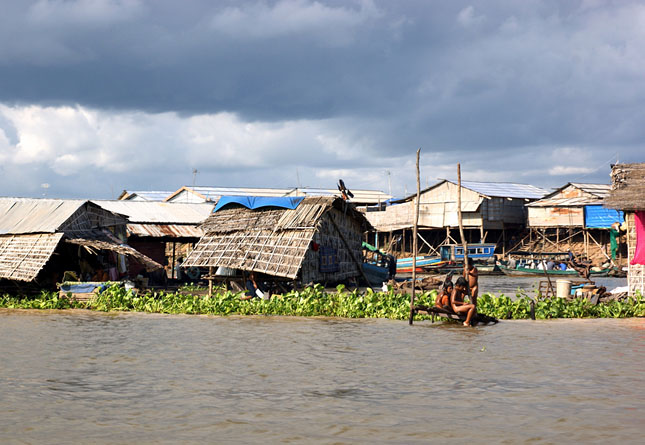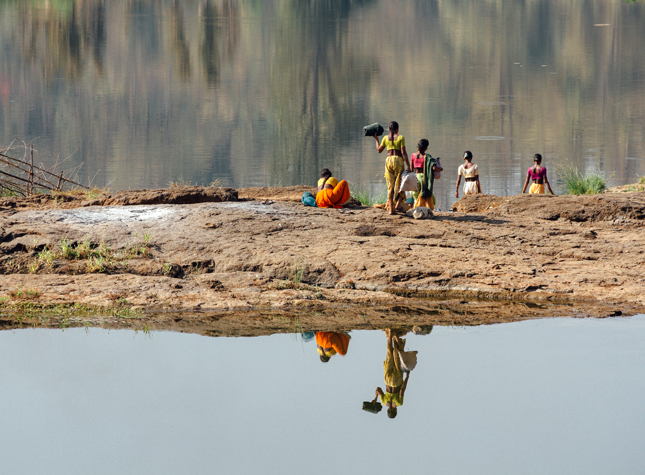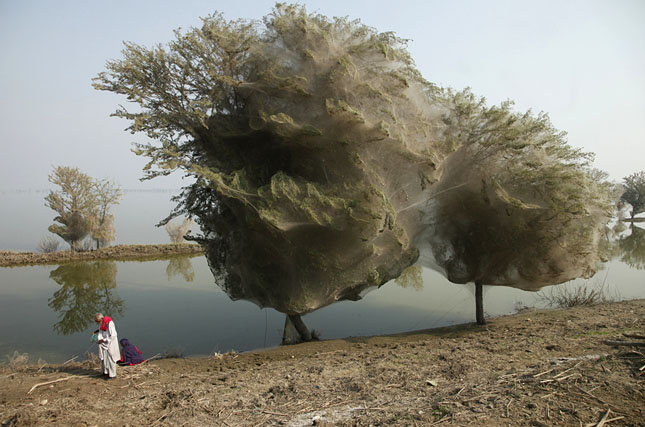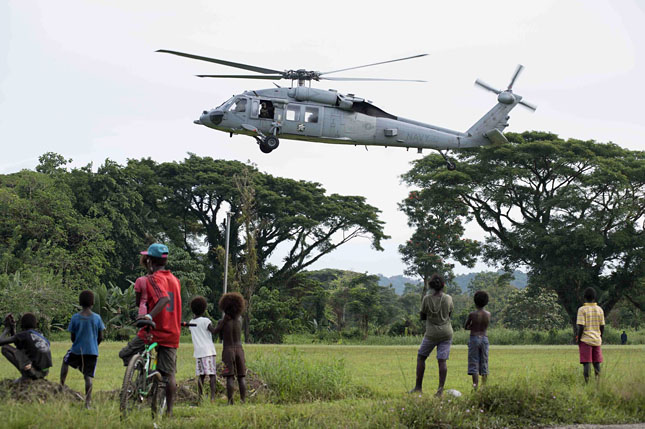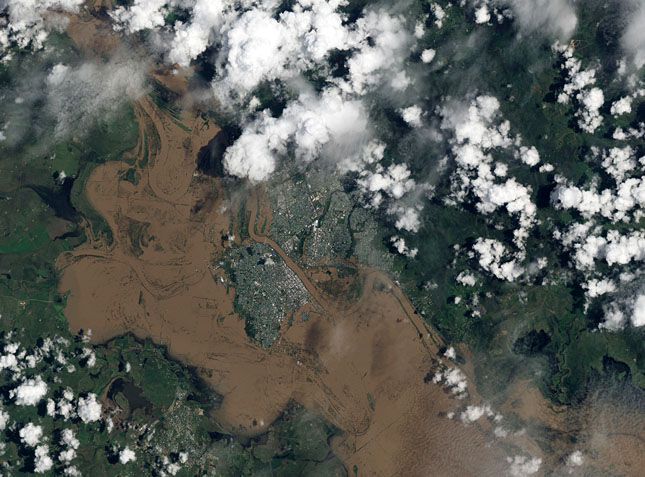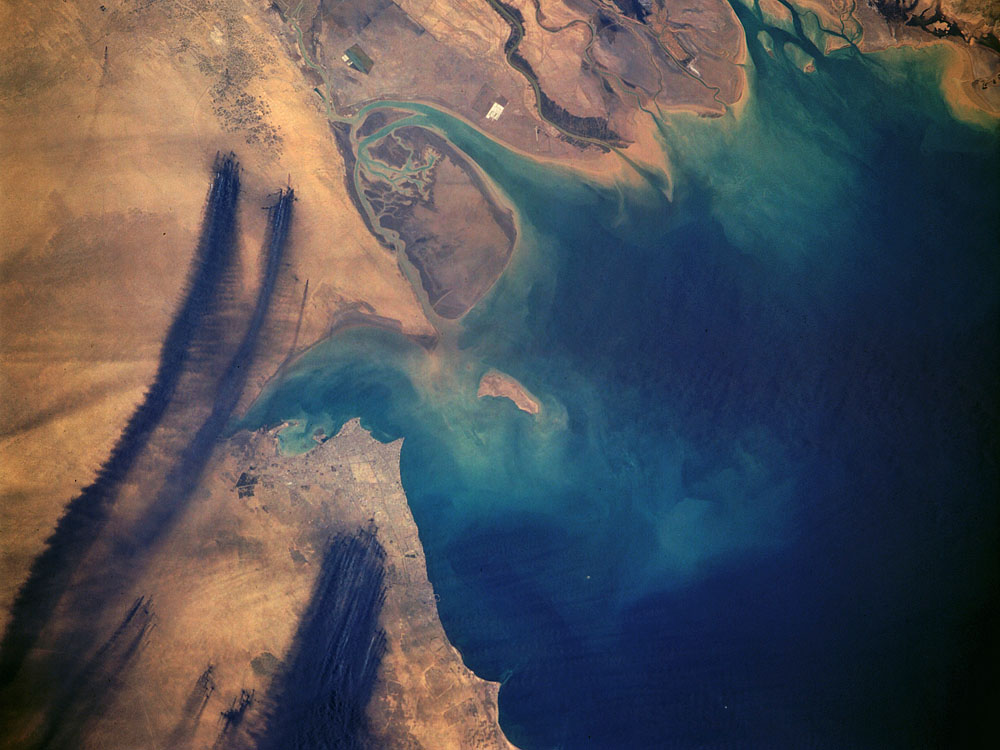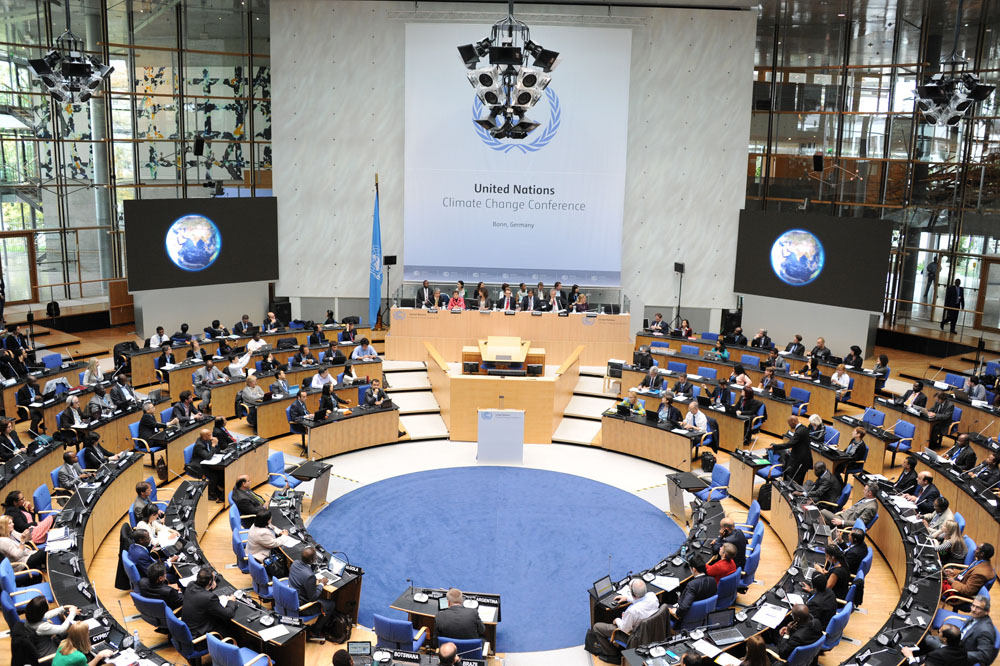-
An Empty Table? Food-Climate-Conflict Connections in Paris
›
Security, terrorism, conflict, and peace: you won’t find any of these words in the landmark agreement released on December 12 at the 2015 Paris Climate Conference (COP-21). It’s never been front-and-center on the agenda at previous Conference of Parties, from Copenhagen to Cancun. But in Paris, a city reeling from terrorist attacks, the specter of climate-related conflict haunted delegates and the potential of a climate-resilient peace inspired grassroots protests.
-
Climate Compensation: How Loss and Damage Fared in the Paris Agreement
›
The agreement coming out of the COP-21 negotiations gave breakthrough recognition to the concept of “loss and damage,” sorting through thorny discussions and politically charged negotiating positions. These positions revolved around liability and compensation, which developing countries called for but developed countries were unwilling to have included in the agreement.
-
Modi’s Grand Plan to Divert Himalayan Rivers Faces Obstacles
›
One of Prime Minister Narendra Modi’s first priorities after winning an overwhelming victory last year on a platform of development and growth is to fast-track a decades-old plan to link India’s rivers.
-
Michael Kugelman, Foreign Affairs
4 Myths About Climate Change in South Asia
›December 9, 2015 // By Wilson Center Staff
Climate change is a very real threat. It will have major implications for every country and region in the world, but South Asia is particularly vulnerable. To appropriately address the challenges there, the world will have to confront four misconceptions about climate change in South Asia. With world leaders convening in Paris to hash out a new agreement on climate change, now is the right time to do it.
-
The U.S. Asia-Pacific Rebalance, National Security, and Climate Change (Report Launch)
›
In the hierarchy of global and national security challenges, climate change comes out near the top, said a panel of distinguished defense, diplomacy, and intelligence leaders at the Wilson Center on November 17. [Video Below]
-
Kerry Announces New Task Force to Integrate Climate Change and Security Issues Into U.S. Foreign Policy
›November 13, 2015 // By Lauren Herzer Risi
In a commanding speech at Old Dominion University this week, Secretary Kerry announced a dramatic step toward integrating climate and security into U.S. foreign policy. In Norfolk, Virginia, home to the world’s largest naval station, Kerry said the State Department is creating a new “task force of senior government officials to determine how best to integrate climate and security analysis into overall foreign policy planning and priorities.”
-
Military Leaders: Climate Change, Energy, National Security Are Inextricably Linked
›In the midst of a minefield on day two of Desert Storm Task Force Ripper, Marine Corps Operations Officer Richard Zilmer stepped out of his armored personnel carrier, squinted up at the sky, and saw nothing but black from horizon to horizon. Iraqi forces, trying desperately to blunt the attack of coalition armies, had set fire to hundreds of Kuwaiti oil wells and oil-filled trenches.
-
Managing Expectations for the Paris Climate Conference and Beyond
›The focus of the global community on the outcomes of the Paris Conference of Parties (COP) to the UN Framework Convention on Climate Change (UNFCCC) in December is unprecedented. The world awaits, anticipating the details of an international and legally-binding agreement to address climate change. [Video Below]
Showing posts from category foreign policy.


